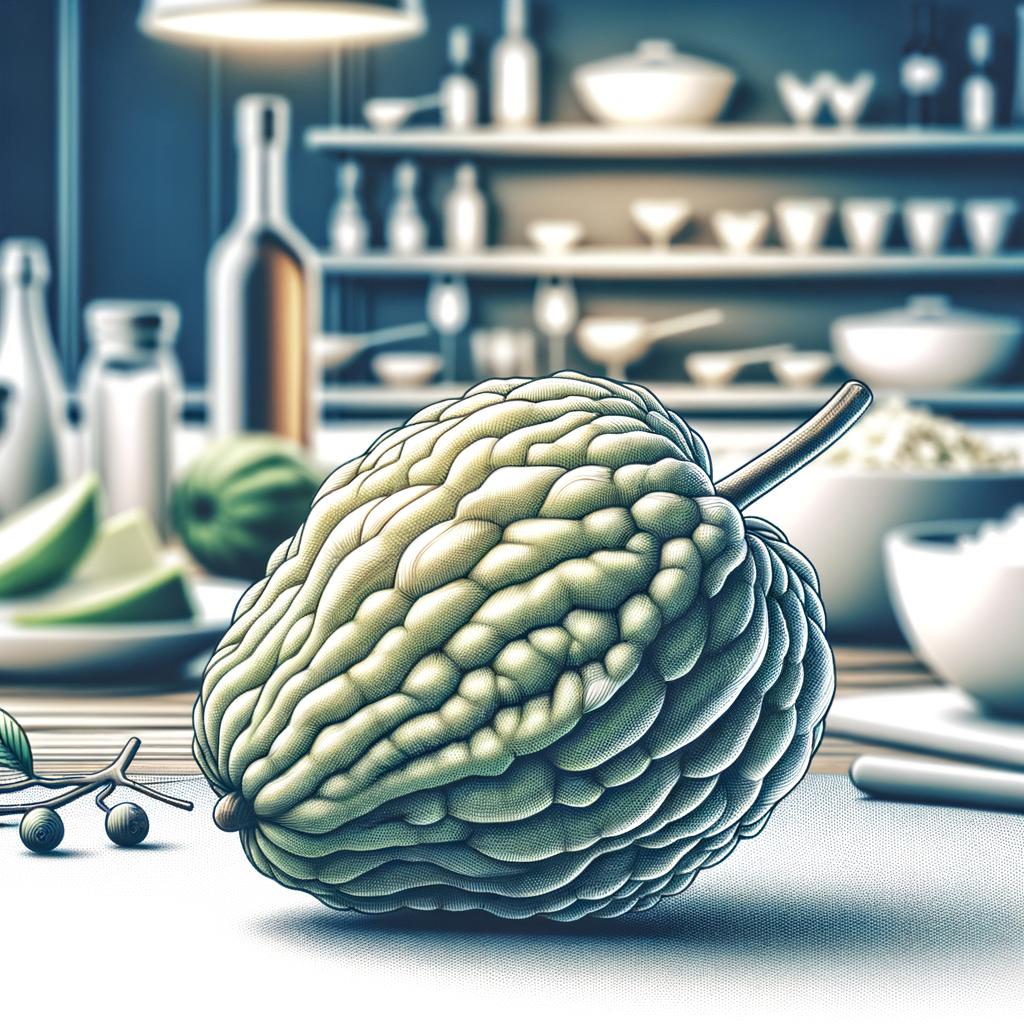Cherimoya Fruit

Description The cherimoya, often referred to as the "custard apple," is a delightfully exotic fruit that hails from the high-altitude, tropical regions of South America. It is a heart-shaped fruit, often green in color, with a scaly skin that encapsulates a creamy, custard-like interior. The fruit's flesh is a luscious white, interspersed with black seeds that are as shiny as a crow's feather. The flavor profile of a cherimoya is a delectable mix of banana, pineapple, papaya, peach, and strawberry, with a hint of vanilla. Its texture is similar to that of a ripe pear, smooth and buttery. This fruit is truly a unique gem, its taste and texture setting it apart from its tropical counterparts.
Primary Uses Cherimoya is a versatile ingredient that can be used in a variety of culinary applications. It can be eaten raw, with the flesh scooped straight out of the fruit, or used in smoothies, ice creams, and desserts for a tropical twist. In South American cuisine, it's often used in salads, salsas, and beverages. The cherimoya's sweet, tropical flavor pairs beautifully with citrus, coconut, and spices like cinnamon and nutmeg. Beyond its culinary uses, cherimoya has been used for medicinal purposes, with traditional cultures using its leaves and seeds to treat ailments like dysentery and fever.
History The cherimoya has a rich and romantic history. It was once a staple of the Incan diet, with remnants of the fruit found in ancient tombs. The Spanish conquistadors were so smitten by its taste that they carried it back to Europe, where it became a favorite of kings and queens. Mark Twain once referred to the cherimoya as "the most delicious fruit known to men." Over time, the cherimoya has traveled across oceans and continents, from the high-altitude orchards of the Andes to the sunny groves of California, Spain, and Australia, growing in popularity with each passing year.
Nutritional Information Cherimoya is not just a feast for the taste buds, but also a treasure trove of nutrients. It's rich in Vitamin C, a powerful antioxidant, and a good source of B vitamins, particularly B6, which is essential for brain health and mood regulation. It also offers a healthy dose of dietary fiber, potassium, and magnesium. Compared to other tropical fruits, cherimoya has a lower sugar content, making it an excellent choice for those watching their sugar intake. Its consumption has been linked to heart health, improved digestion, and a stronger immune system. However, it's important to note that the seeds of the cherimoya are toxic if crushed and consumed, so they should always be removed and discarded.

